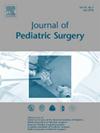语言、口译员的使用与儿科手术结果之间的关系。
IF 2.4
2区 医学
Q1 PEDIATRICS
引用次数: 0
摘要
背景:儿童手术结果存在不公平。不同的种族群体、地理位置和社会经济地位已经确定了不同的结果。然而,在儿科外科文献中,首选语言、口译员的使用和手术结果之间的关系并没有得到很好的研究。方法:我们对2016年1月1日至2020年12月31日期间某第四儿科医院0-21岁手术患者进行回顾性队列研究。我们的研究对象使用的95种语言被分为英语、西班牙语、亚洲语言、其他印欧语言和其他语言。研究结果为术后30天死亡率和严重不良事件(SAE)。逻辑回归评估语言、翻译使用与术后预后之间的关系。偏差对比避免了以非西班牙裔白人英语使用者为中心。全对比较(土耳其对比)确定了语言群体之间的差异。结果:在56655名患者中,89%的患者使用英语,6.7%的患者使用西班牙语,1.4%的患者使用其他语言,1.3%的患者使用亚洲语言,1.3%的患者使用其他印欧语言。在多变量回归中,说英语的人死亡率降低了54% (OR 0.46, 95% CI: 0.31, 0.69),而说其他语言的人死亡率增加了240% (OR 2.4, 95% CI: 1.31, 4.41)。两两比较显示,说英语的人比说其他语言的人死亡率低(OR 0.18, 95% CI: 0.07, 0.45)。口译器的使用与SAE发生率的显著降低相关,但没有降低死亡风险。讨论:具有少数语言偏好的儿科外科患者术后死亡率在统计学上显著增加。进一步的调查,以评估和解决与语言相关的不同儿科外科护理结果是必要的。证据等级:三级。本文章由计算机程序翻译,如有差异,请以英文原文为准。
Association Between Language, Interpreter Use, and Pediatric Surgical Outcomes
Background
Inequities exist in pediatric surgical outcomes. Differential outcomes have been identified across racial groups, geography, and socioeconomic standing. However, the association between preferred language, interpreter use, and surgical outcomes is not well-studied in pediatric surgical literature.
Methods
We performed a retrospective cohort study of surgical patients ages 0–21 years at a quaternary pediatric hospital between 1/1/2016 - 12/31/2020. The 95 languages spoken by our cohort were grouped into English, Spanish, Asian languages, Other Indo-European languages, and Other languages. Study outcomes were 30-day post-operative mortality and serious adverse events (SAE). Logistic regression assessed the relationship between language, interpreter use, and post-operative outcomes. Deviation contrasts avoided centering non-Hispanic white English speakers. All-pairs comparisons (Turkey contrasts) determined differences between language groups.
Results
Among 56,655 patients, 89 % had a documented language of English, 6.7 % Spanish, 1.4 % Other, 1.3 % an Asian language, and 1.3 % an Other Indo-European language. On multivariable regression, English speakers had 54 % decreased odds of mortality (OR 0.46, 95 % CI: 0.31, 0.69), while Other language speakers had 240 % increased odds of mortality (OR 2.4, 95 % CI: 1.31, 4.41). Pairwise comparisons showed that English language speakers had reduced odds of mortality versus Other language speakers (OR 0.18, 95 % CI: 0.07, 0.45). Interpreter use was associated with a significant reduction in the odds of SAE but did not reduce mortality risk.
Discussion
Pediatric surgical patients with a linguistic minority preference experienced statistically significant increased odds of post-operative mortality. Additional inquiry to assess and address disparate pediatric surgical care outcomes associated with language is warranted.
Level of Evidence
Level III.
求助全文
通过发布文献求助,成功后即可免费获取论文全文。
去求助
来源期刊
CiteScore
1.10
自引率
12.50%
发文量
569
审稿时长
38 days
期刊介绍:
The journal presents original contributions as well as a complete international abstracts section and other special departments to provide the most current source of information and references in pediatric surgery. The journal is based on the need to improve the surgical care of infants and children, not only through advances in physiology, pathology and surgical techniques, but also by attention to the unique emotional and physical needs of the young patient.

 求助内容:
求助内容: 应助结果提醒方式:
应助结果提醒方式:


